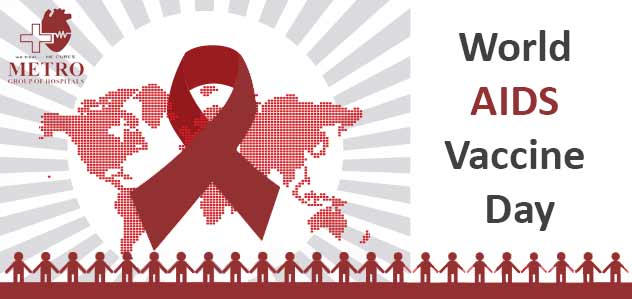19th June is being observed as World Sickle Cell Day all across the globe. The day is celebrated to spread the awareness among the masses about this deadly disease so that there is an effective control over the situation.
Sickle Cell Day was established by the United Nations General Assembly in the year 2008 with the goal to increase the awareness about this fatal disease and its cure among the general public. Sickle Cell disease has become very common and foremost genetic disease globally which needs to be cured through councelling of parents, early diagnosis, management followed by various curable activities.
According to various data, it has been observed that more than 1000 babies are being born with this disorder each day in Africa and are dying up to five years of age. About 90,000 to 1, 00,000 people are being affected with this disease in the United States. India, Saudi Arabia, Turkey, Arabic peninsula, Brazil, Surinam, Guiana, Southern Italy, Greece and many more countries, where many people are affected with this life threatening disease.
This genetic health disorder has caused problems to people all around the world, which has lead to the increase risk of premature child deaths.
About Sickle Cell Disease:
Sickle Cell disease is an inherited, genetic and life threatening disease leading disorder of the red blood cells (RBC).Normal human RBC are of shape of disc because of which they have the flexibility to move easily even through the smallest blood vessels. In case of sickle cell disease, the shape of RBCs changes and turns into crescent shape resembling like a sickle. This abnormal shape of red blood cells makes them sticky and rigid and prone to getting trapped in small vessels, blocking the flow of blood reaching to the other parts of the body. This eventually leads to the pain, damage of tissues, headache, stroke, liver problems, heart problems, etc.
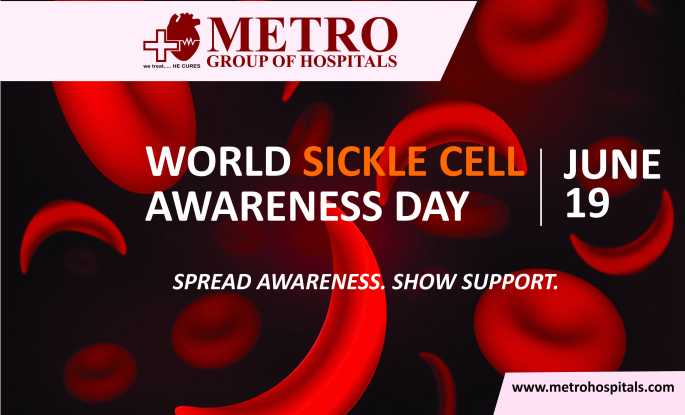
Symptoms of Sickle Cell:
Usually the symptoms of sickle cell anemia show up at very young age, might appear in babies as early as 4to 6 months age.
Mentioned below are some of the symptoms:
- Blue baby on crying
- Bedwetting, from associated kidney problems
- Yellowing of the eyes and skin, Jaundice,
- Excessive fatigue or irritability, from anemia
- Pain and swelling in hands and feet
- Frequent infections
- Fussiness, especially in babies
- Pain in the chest, back, arms or legs ,precipitation on exertion exercise ,high altitude, severe infection ,infect any condition requiring more oxygen
There are 5 types of Sickle Cell disease:
- Hemoglobin SS Disease (disease inherited from both the sickle disease parents
- Hemoglobin SC Disease
- Hemoglobin SB+ (beta) thalassemia
- Hemoglobin SB+0(beta-zero) thalassemia
- Hemoglobin SD, hemoglobin SE, and hemoglobin SO(sickle Hb with other variant Hb.
Also Read : World Sickle Cell Day
Treatment and Home remedies:
The only potential cure for sickle cell disease is bone marrow transplant or the stem cell transplant. The treatment is preferable for the patient who is younger than 16 years because the risk increases for the patient who is older than 16 years.
Other than this immunization, contraception of diseased parents is recommended to prevent diseased progeny and adults are advised to maintain their health.
Mentioned below are some of the remedies which sickle cell disease patients can take to stay healthy while avoiding the complications of sickle cell anemia:
- Opt for healthy diet: opt for the diet which focuses on a variety of colorful fruits and vegetables as well as whole grains. Your doctors will advice a folic acid supplement as bone marrow needs folic acid and other vitamins to make new red blood cells.
- Drink plenty of water: stay hydrated, as dehydration increases the risk of sickle cell crisis.
- Avoid temperature extremes: try to avoid the exposure of extreme heat or cold as they exposure to extreme temperature has the tendency to increase of sickle cell crisis
- Going to high altitude: Exercise regularly, but don’t overdo it: don’t over exercise, ask your doctor about all the exercises and time period for exercising.
- Use of over-the-counter (OTC) medications with caution: Use OTC pain medications, such as ibuprofen (Advil, Motrin IB, Children’s Motrin, others) or naproxen sodium (Aleve) sparingly, as they all have possible effect on the kidneys.
Gene Therapy is going to be one of the best treatment for the Sickle cell Anemia for which the research and study is still going on by our scientists.The patient should get properly evaluated by Clinical Psychologist.
Consult our expert, Dr. Om Kumari, Senior Consultant – Clinical Haematologist.Call: 99104 92867 or email: metro@metrohospitals.com


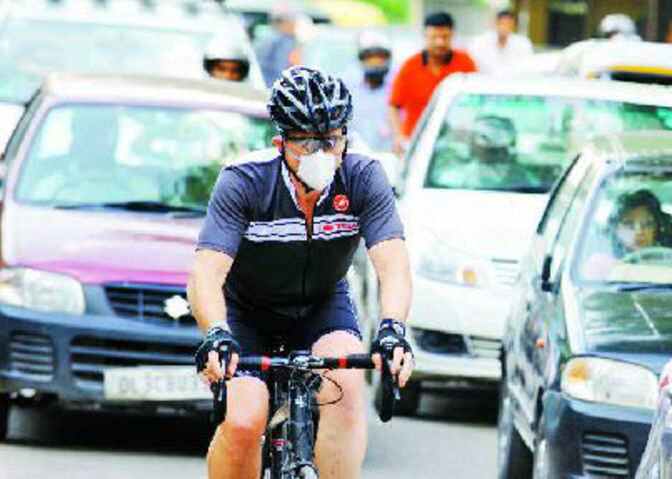



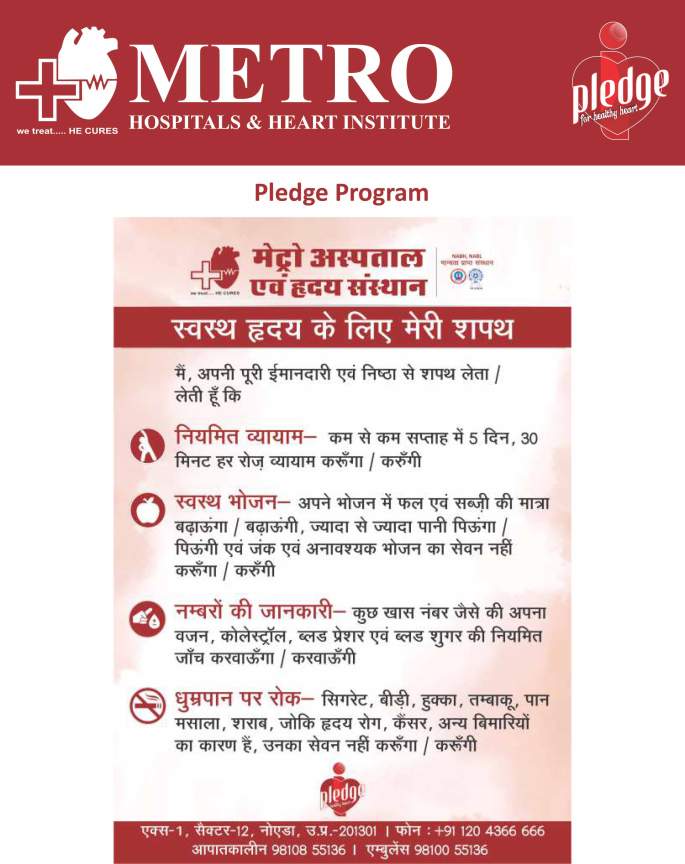





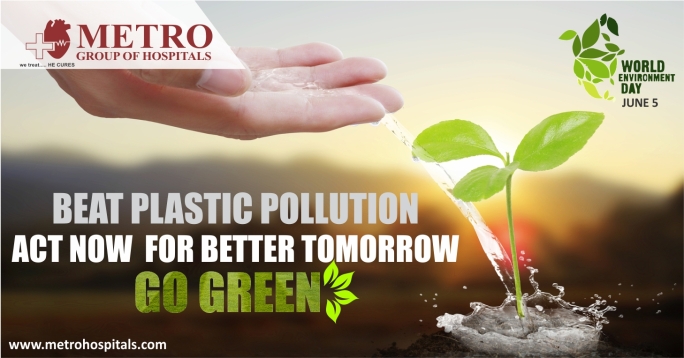 Looking after the excessive use and production of plastic products the UN has declared “Beat Plastic Pollution” as the theme for this year World Environment Day. The day will encourage people to change their single use plastic products with other reusable alternatives as the world is coming together to fight the single-use plastic pollution.
Looking after the excessive use and production of plastic products the UN has declared “Beat Plastic Pollution” as the theme for this year World Environment Day. The day will encourage people to change their single use plastic products with other reusable alternatives as the world is coming together to fight the single-use plastic pollution.
